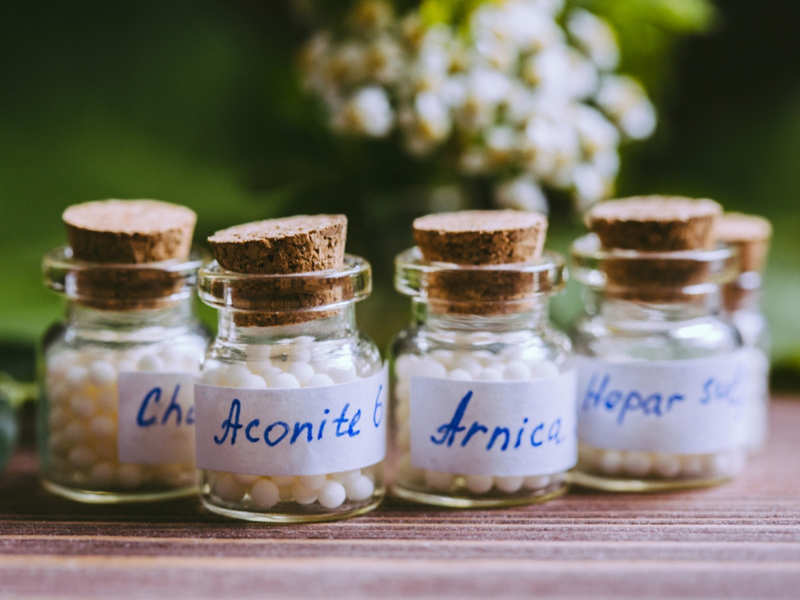The WHO estimates that there were 219 million cases of malaria worldwide in 2017. Every 2 minutes, a child dies of malaria. And each year, more than 200 million new cases of the disease are reported. Although countries have dramatically reduced the total number of malaria cases and deaths since 2000, progress in recent years has stalled. Worryingly, in some countries, malaria is on the rise.
In confirmed cases of malaria, it is not advisable to deviate from the recommended treatment regimens with conventional medicines. However, the treatment of malaria is being forced to constantly evolve due to the growing incidence of resistant strains of malaria. The drug chloroquine is becoming ineffective in treating cases of Plasmodium vivax. Similarly, resistance of the newer drugs like Pyrimethamine is also being reported and is increasing in cases of Plasmodium falciparum.
As health services, all over the world, grapple with the concept of drug resistance it is important to consider homeopathic intervention as a time tested, effective and safe line of treatment. The homeopathic management of malaria has significant and unique contributions which benefits the patient in many ways.
First, as a prophylactic. Anti-malaria medicines have several side effects. In patients who are unable to tolerate the medicines or while visiting countries with low risk of infection, homeopathic medicines may be considered as a prophylactic. Eupatorium Perfoliatum 30ch, two times a day during the visit is commonly prescribed and has proven to be highly effective. However, ‘common sense’ protective measures from mosquito bites should always be observed.
Second, as an adjuvant to conventional anti-malarial treatment. Malaria causes flu-like symptoms with marked shaking chills, periodic fevers, headaches, muscle aches and tiredness. All these symptoms can be quite severe and may require add on medicine. High doses of painkillers in patients who are unable to eat and are, sometimes, dehydrated, may lead to other complications. The use of homeopathic medicines like Eupatorium Perfoliatum Q, Belladonna 3c and others given in high frequency helps reduce the acute discomfort that patients feel, without the addition of many allopathic medicines.
Third, as an intervention to manage complications arising from malaria, like jaundice, kidney dysfunction, hallucinations etc. These are less common but serious signs and symptoms which may arise in patients with malaria. For jaundice and renal dysfunction there are no specific treatments in conventional medicine. Homeopathic medicines like Chelidonium Majus 30c for jaundice, and Lycopodium 30c for renal dysfunction, help in rapidly lowering the abnormal readings and reduce the recovery period of the patient.
Fourth, in the management of chronic malaria. Chronic malaria is defined as a long-term malarial infection in semi-immune patients which results in an increase of the size of the spleen. This may be life-threatening. If these cases don’t respond to long term antimalarial treatment, conventional medicine has limited scope. The introduction of homeopathic medicines like Natrum Mur 30ch has repeatedly demonstrated a better response in the patients who have not responded to conventional treatment.
Newer homeopathic drugs like Vitex Negundo Q are used in obstinate cases.
Complications from malaria may be severe and are potentially life-threatening. Some complications of malaria include involvement of the brain, failure of kidneys and liver. These are conditions that also respond well to homeopathic treatment while not interfering with any other treatment being given simultaneously. It is also important to note that no specific treatment exists for this kind of organ failure in conventional medicine.
Homeopathy is used as a preventive for malaria as well. Eupatorium Perfoliatum is extremely effective in keeping malaria at bay. However, simple steps to prevent the contraction and spread of malaria should never be ignored.
Research into improving the efficacy of homeopathic treatment for malaria continues. The Federal University of Rio de Janeiro, Brazil and the Council for Research into Homeopathy, India have entered into a collaboration to study the efficacy of the homeopathic treatment of malaria in 2017 and research is ongoing.
Although, when a confirmed diagnosis of malaria comes in, anti-malarial treatment should be given, homeopathic medicines have all these benefits to offer patients of malaria. Importantly, homeopathy can serve as, literally, a life-saver in cases with complications arising from malaria or in patients who do not respond to anti-malarial treatment.
It is important to remember that an early diagnosis of malaria can save lives and the best form of treatment is prevention. Preventing breeding of mosquitoes around us and using appropriate protection during mosquito breeding season should be practiced in the community at large.
Dr. Kushal Banerjee is a second-generation homeopath at the renowned Dr. Kalyan Banerjee’s Clinic, CR Park and has over a decade of experience in the practice. He is also a member of the British Register of Complementary Medicine, England and has lead-authored research on homeopathy with collaborators from the University of Oxford and Imperial College, London.
DISCLAIMER: THIS ARTICLE DOES NOT PROVIDE MEDICAL ADVICE
The information contained in this article is for informational purposes only. The purpose of this article is to promote a broader understanding of homeopathy in the treatment of various health conditions. It is not intended to be a substitute for professional medical advice, diagnosis or treatment. Always seek the advice of your physician or other qualified health care provider with any questions you may have regarding a medical condition or treatment and before undertaking a new health care regimen, and never disregard professional medical advice or delay in seeking it because of something you have read in this article.

